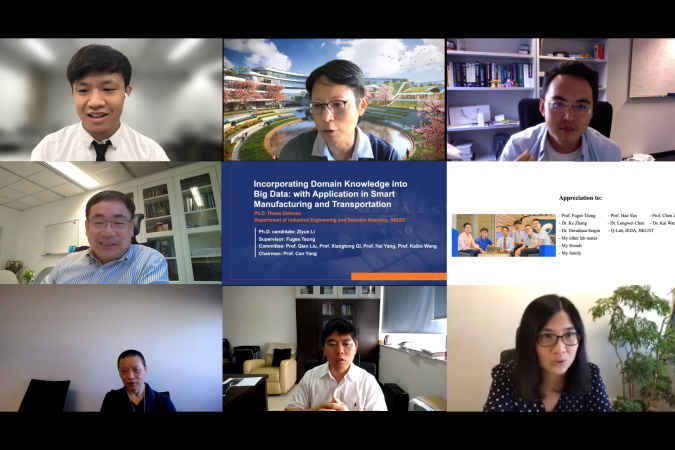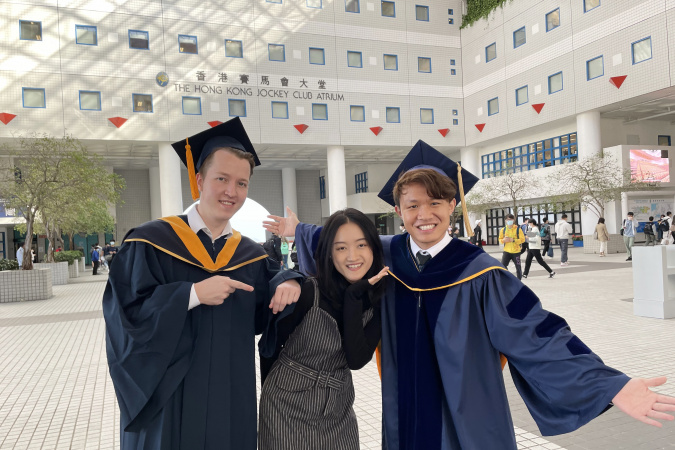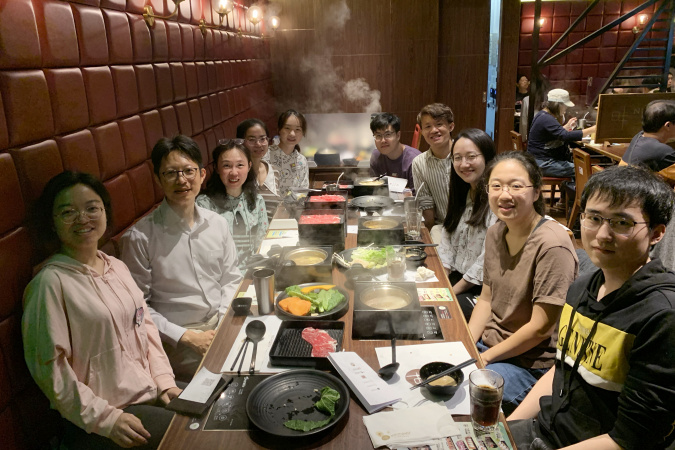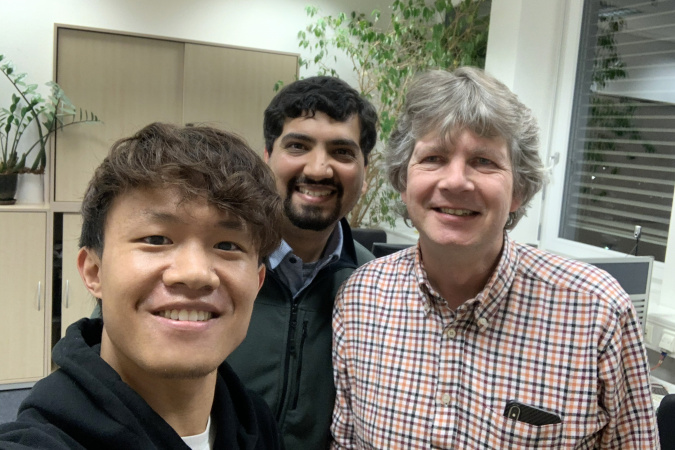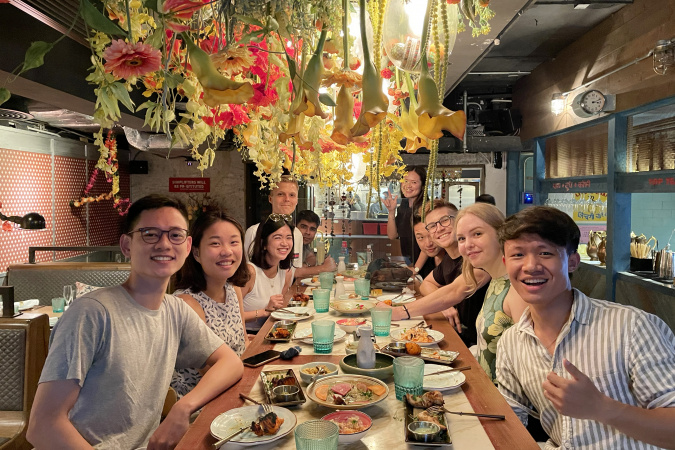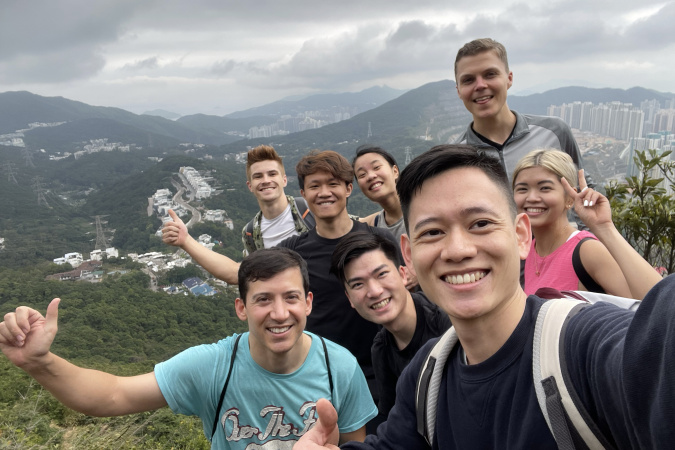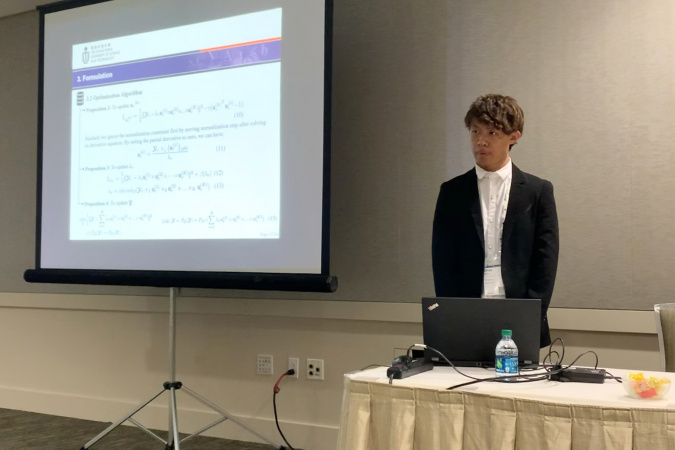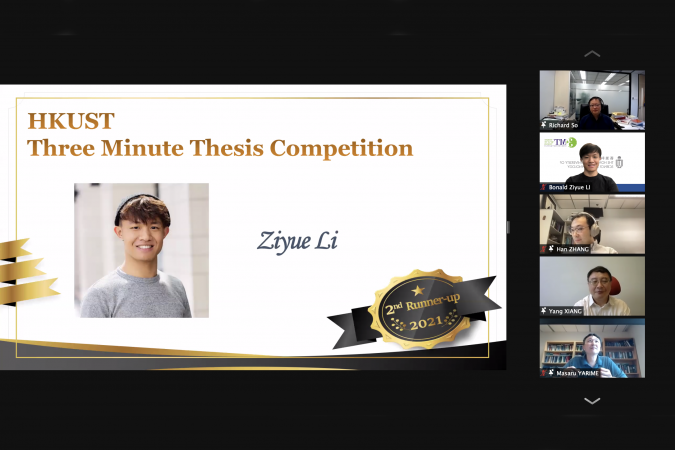PhD Graduate Dr Bonald LI Ziyue
Having the Best of Both Worlds
Dr. Bonald LI Finds Right Balance between Industry and Academia
Advances in data science have fundamentally reshaped how our management operates by enabling data-driven decisions. With an extensive background in smart transport, Dr. Bonald LI Ziyue, an HKUST alumnus with a PhD in Industrial Engineering and Decision Analytics (Class of 2021) has recently taken up a dual role at the University of Cologne in Germany. He is Assistant Professor of Machine Learning in Smart Mobility at the Cologne Institute of Information Systems as well as Chief Machine Learning Scientist at the Institute of Energy Economics. He shares about the journey he has taken in pursuing what he loves – exploring the vast potential that data mining and machine learning offer for tackling real-world problems.
While studying for his degree in mechanical engineering and finance at the Xi’an Jiaotong University in Mainland China and University of New South Wales, Australia, Bonald became fascinated with trouble shooting for signal processing errors. “By gathering and extracting data patterns, I obtained useful insights to address these issues. This is the basis of information analytics, paving the way for my research in the years to come,” he recalls, exhibiting the excitement he feels about his work.
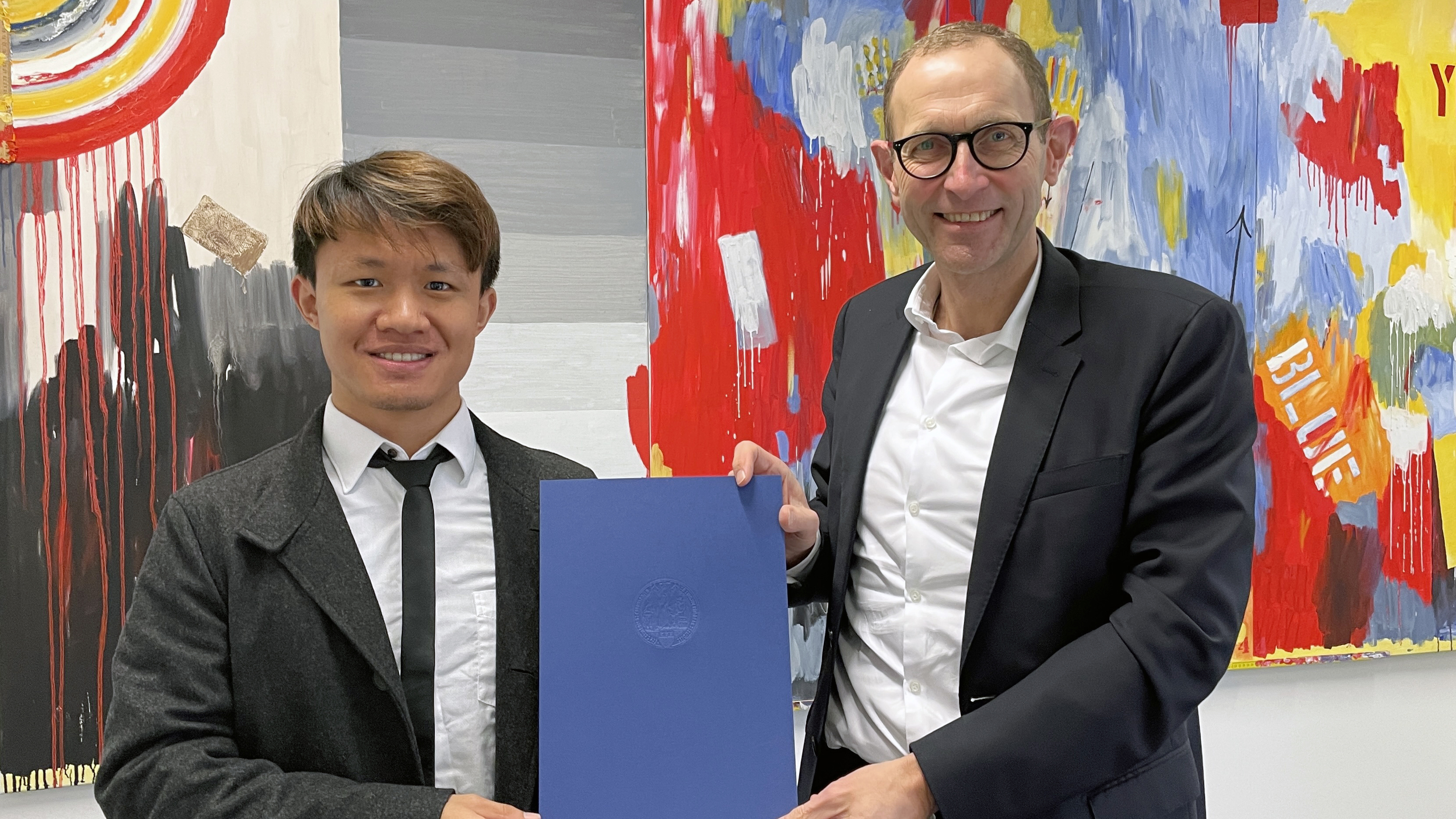
Right place, right people, right time
When Bonald first visited HKUST for a summer program right before his undergraduate studies, he was immediately mesmerized both by the University’s internationalized atmosphere and its beautiful campus. When the time came to work for his PhD in 2017, he had no doubts about selecting HKUST. Another crucial consideration in his choice was his supervisor, Prof. Fugee TSUNG, currently Chair Professor, Department of Industrial Engineering and Decision Analytics. “I learned so much from him because we have a similar career path, beginning in mechanical engineering, gradually moving to industrial engineering and data mining,” he says appreciatively.
“I learned computer programming skills in my undergraduate years without realizing their value at that time. Now, these skills are instrumental for my research and current work. The growth mindset has motivated me to cultivate new abilities, and most importantly, to break through the psychological constraints that I have placed on myself.”
In the second year of his PhD studies, Bonald attended INFORMS Annual Meeting in Phoenix, USA, where he met his long-time collaborator, Prof. Hao YAN of Arizona State University. With a shared interest in machine learning for dealing with public transport issues, they began working closely together and jointly publishing in leading journals.
“I feel lucky to have met the right people at the right time. The HKUST has connected me with a supportive circle of friends I can count on whenever I face challenges in my study and in life,” Bonald says.
Win-win career choice
Upon graduation, Bonald found himself at a career crossroads. He joined SenseTime, the Hong Kong-based artificial intelligence (AI) software company. He was Machine Learning Researcher, responsible for developing AI-driven solutions to meet market and client needs. Being more interested in research than in applying it, Bonald explored different options, eventually securing his current role at the University of Cologne.
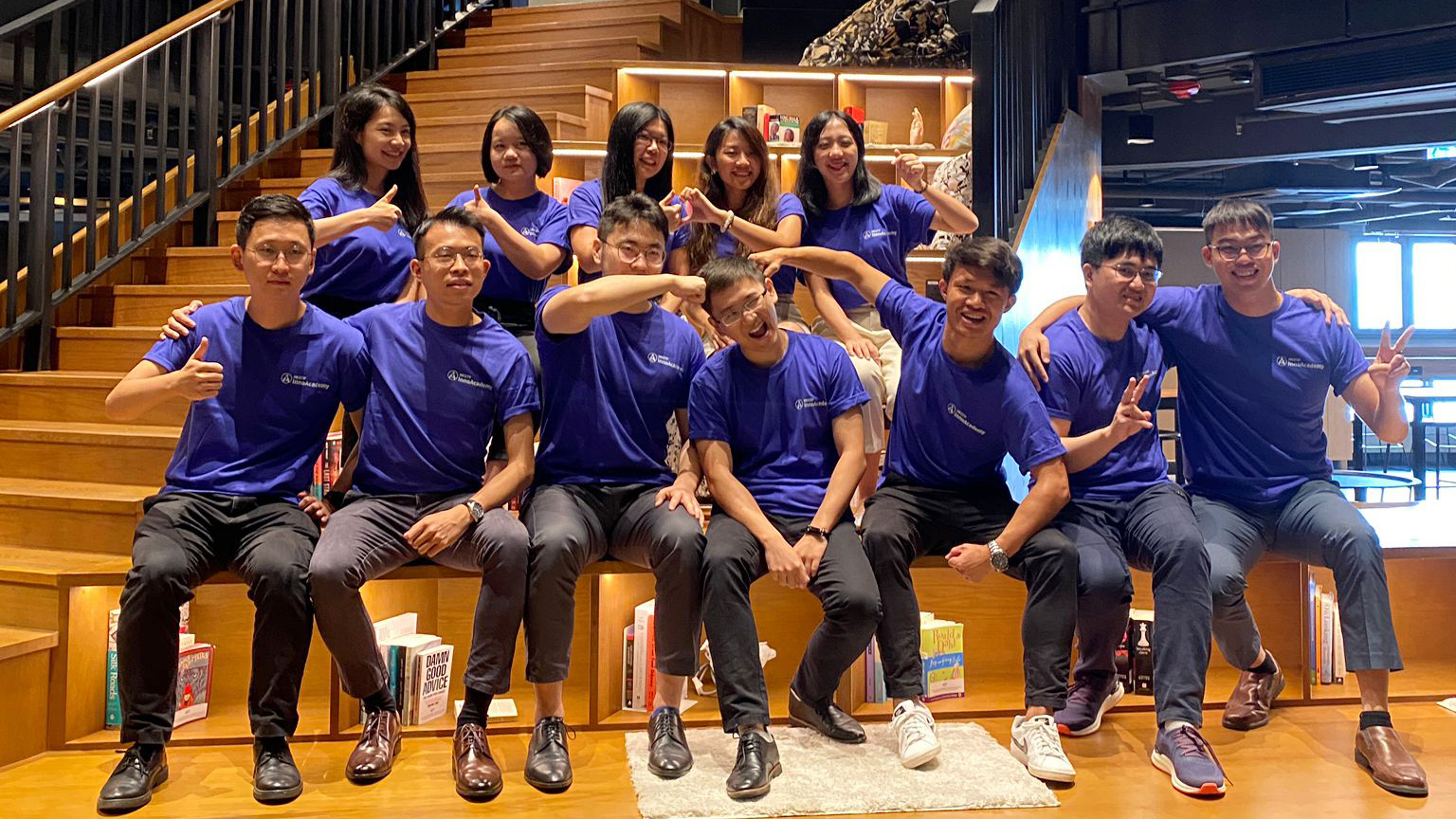
“Whenever I meet people, I always wish them every success and emphasize their future growth. If I am able to facilitate their achievements, I share that sense of accomplishment too. In this sense, working in academia is the right direction for me.”
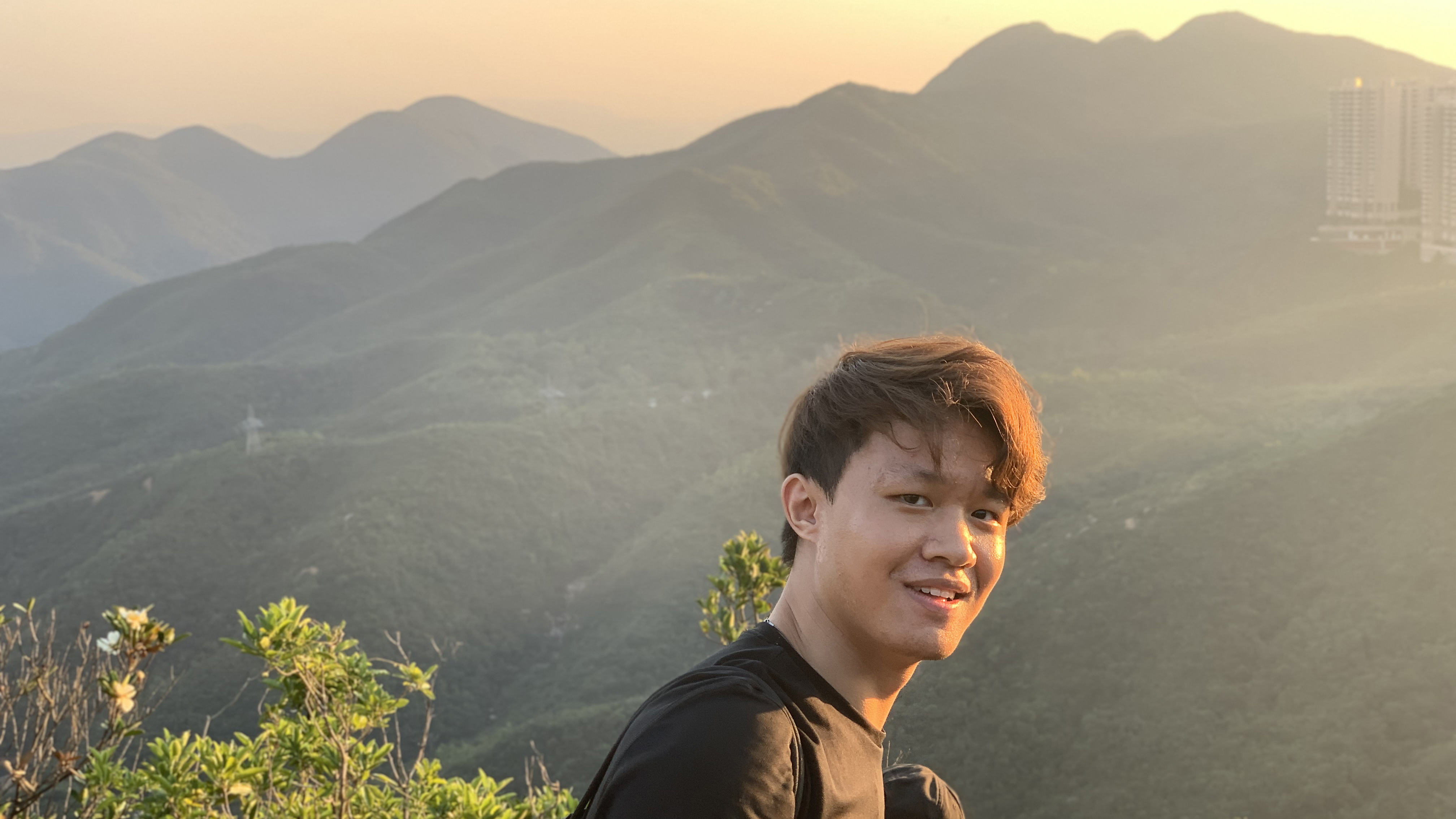
“It came down to what matters most to me. I am happy when I do research in machine learning. But it was a difficult choice because I enjoyed working with my former boss and teammates. They warmly welcomed my suggestion of keeping up a cooperative relationship. It’s a great outcome for me to bridge academia and industry,” he adds.
Sharing his job-seeking experience, Bonald notes that technology companies in different markets have varying expectations: “Businesses in Hong Kong may look for language and communication skills for working with counterparts in Mainland China, while European or US-based employers tend to emphasize international exposure in conferences or competitions.”
“Also, the HKUST Career Center was immensely helpful in reaching out to alumni with working experience in Germany for me.”
Make the most of today for a better tomorrow
Looking to the next three to five years, Bonald plans to stay put and build his own research team in Germany for data mining and machine learning for smart city, intelligent transport, energy systems, and other emerging issues.
“It is important to recognize that my achievements are built on my past experiences, from working with Prof. TSUNG and Prof. YAN, to winning best paper awards at international conferences and HKUST Hackathon or the Three Minute Thesis Competition. Similarly, my current efforts will shape my future life in unimaginable ways. So, maximize the opportunities today, because the more you learn, the more prepared you are for the future.”

